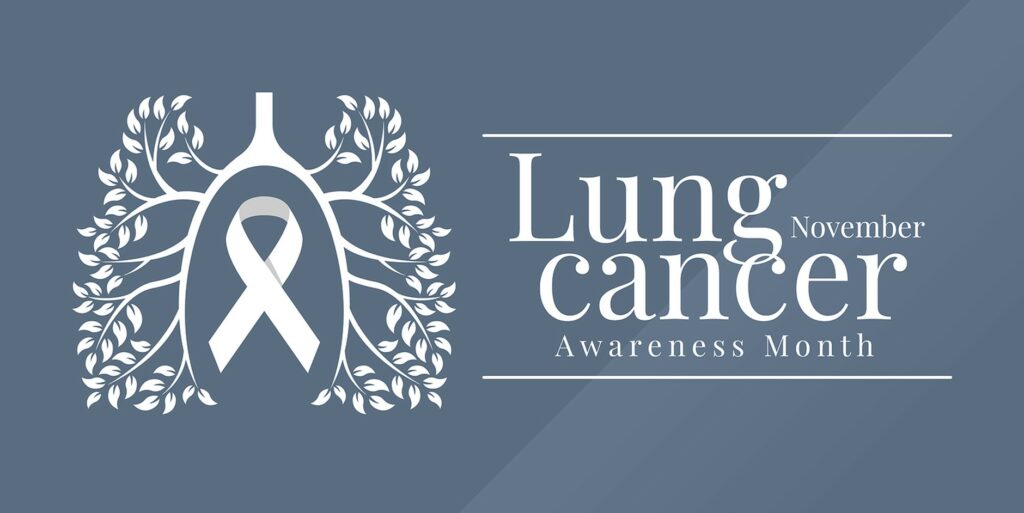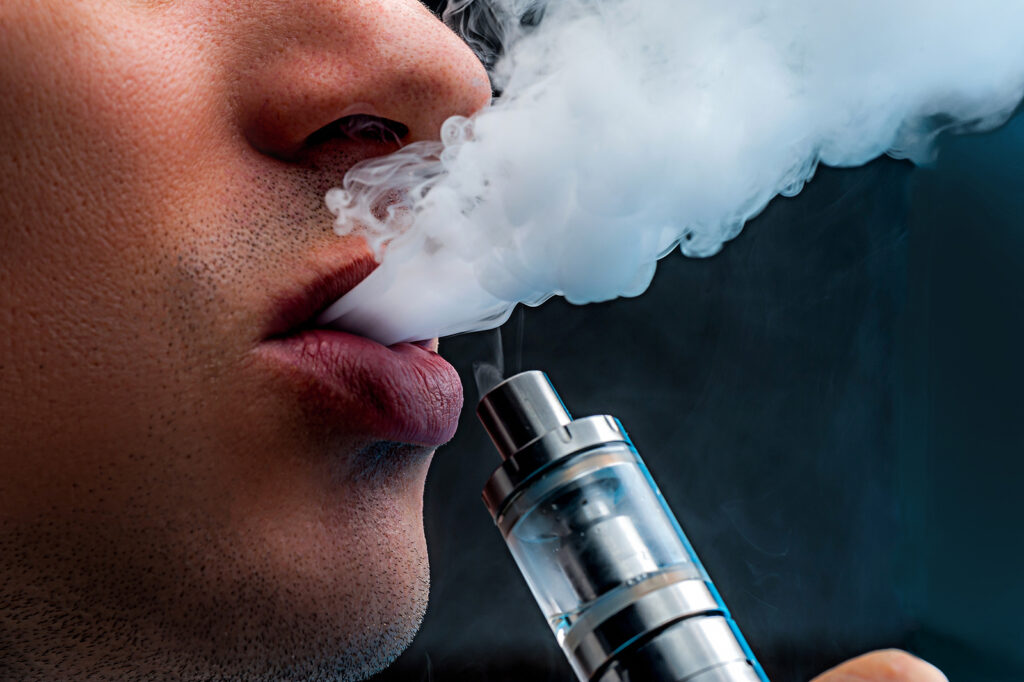
November is Lung Cancer Awareness Month
The American Cancer Society has designated November as Lung Cancer Awareness Month. According to the American Lung Association, lung cancer is the second most common form of cancer in the U.S.
Each year, lung cancer accounts for roughly one in four cancer deaths. In other words, more people die due to lung cancer-related causes than prostate, colon, and breast cancers combined. (AHA, 2020)
Smoking is considered to be a leading cause of lung cancer, yet not everyone who smokes gets cancer nor does everyone who gets lung cancer smoke. Here are some ways by which one can lower lunch cancer risk.
Don’t Smoke
The most important thing you can do to prevent lung cancer is to not start smoking, or to quit if you smoke. Smoking can cause cancer and then block your body from fighting it. Nearly 9 out of 10 lung cancers are caused by smoking cigarettes. Treatments are getting better for lung cancer, but it still kills more men and women than any other type of cancer. (Time, 2020)
Vaping and Lung Cancer
Vaping is a relatively new phenomenon that’s only been on the scene for about a decade. While the long-term effects of vaping are still being studied, however, for individuals who have never smoked before and aren’t planning to, vaping can increase their risk of lung cancer since most vaping liquid contains nicotine and toxic chemicals.

What are the risks associated with vaping?
Vaping causes fewer health risks than smoking, but it’s not a risk-free activity. Vaping can increase your heart rate, decrease air volume in the lungs, and increase airway resistance—and those are just the short-term effects.
Long term, aside from an increased risk of lung cancer for users who have never smoked before, vaping can cause individuals to become addicted to nicotine and exposure to toxic chemicals.
The AHA noted that vaping liquids contain fewer contaminants than cigarettes. However, they also state that vaping is not safe due to the following reasons: (AHA, 2020)
- E-cigarettes contain a large dose of nicotine, a substance known to slow the development of brains in fetuses, children, and teens.
- The liquid that creates the vapor is dangerous to adults and children if they swallow or inhale it or get it on their skin.
- Vaping also delivers several dangerous chemicals, including diacetyl, cancer-causing chemicals, heavy metals, and volatile organic compounds (VOCs).
Quitting smoking and vaping
The CDC recommends that people use an FDA-approved method to help them stop smoking. They also strongly urge people to talk to their doctor about quitting either smoking or vaping. (CDC, 2020)
Vaping and smoking share similar negative effects on the body, such as damage to the lungs and increased cancer risk.
People should not use vaping to quit smoking. Instead, they can use FDA-approved cessation methods. A person who would like more advice about quitting can speak to their doctor.
Work Cited
“Lung Cancer Awareness Month.” American Lung Association, Apr. 2020, www.lung.org/lung-force/about-lung-force/featured-campaigns/lung-cancer-awareness-month
“What Do We Know About E-Cigarettes?” American Cancer Society, July 2020, www.cancer.org/cancer/cancer-causes/tobacco-and-cancer/e-cigarettes.html
Ducharme, Jamie. “Vaping Raises the Risk of Respiratory Disease, Study Says.” Time, Time, 2 Mar. 2020, time.com/5748868/vaping-respiratory-disease/
“Lung Cancer Awareness Feature.” Centers for Disease Control and Prevention, Centers for Disease Control and Prevention, 28 Oct. 2019, www.cdc.gov/cancer/dcpc/resources/features/lungcancer/index.htm
“Is Vaping Better Than Smoking?” Www.heart.org, Mar. 2020, www.heart.org/en/healthy-living/healthy-lifestyle/quit-smoking-tobacco/is-vaping-safer-than-smoking





